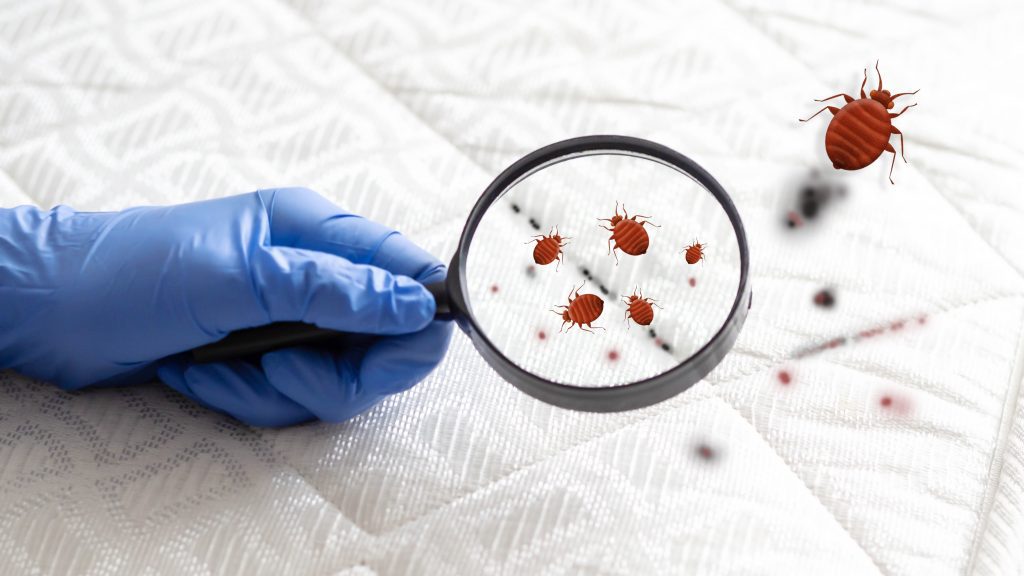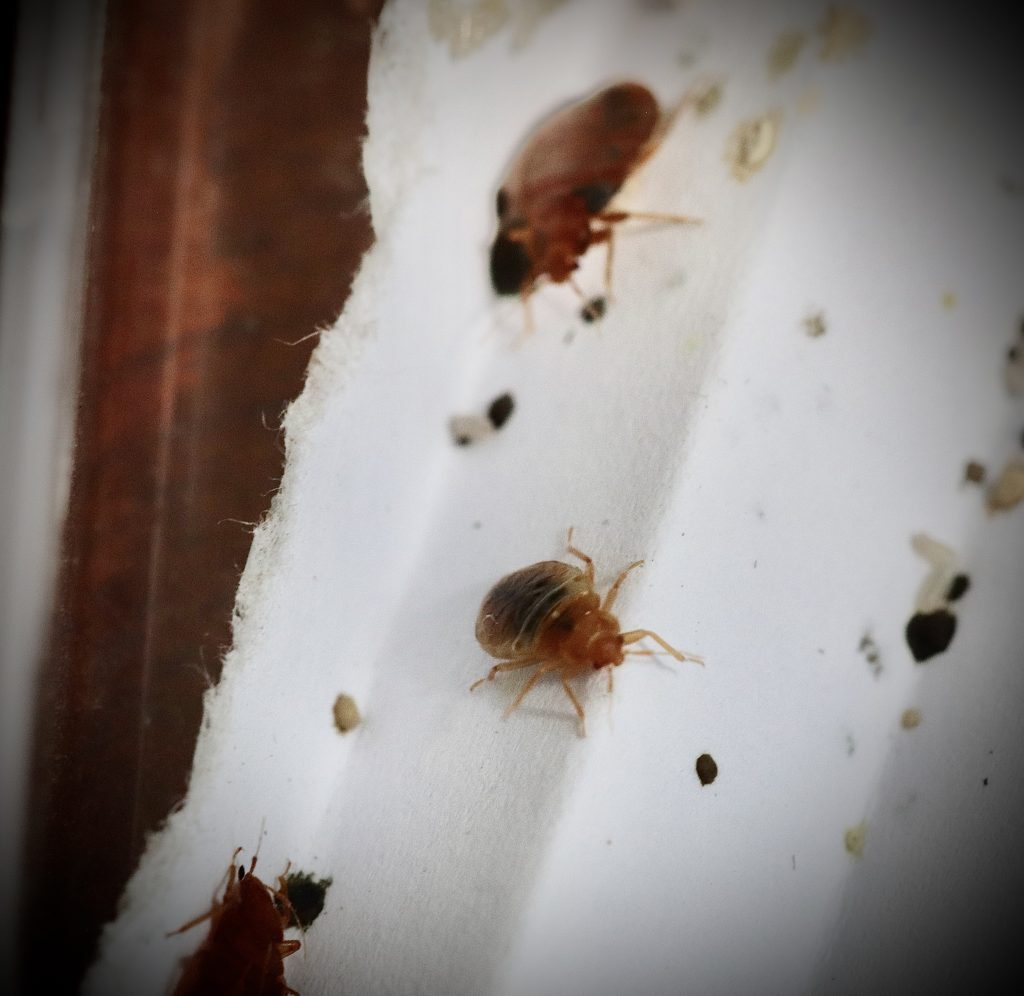Methods to Prevent Bed Bugs
Even the most well-kept, cleanest property can become the subject of a bed bug infestation. It can be difficult to prevent a bed bug infestation, as they’re often quite random.
However, there are a number of ways you can stay vigilant about protecting you and your family from bed bugs all year long! By staying educated about the very real threat of bed bugs, you can lessen the risk of having a problem down the road.
Discover more in our tips on how to avoid bringing bed bugs into your home or the steps you can take to prevent bed bugs in your apartment.
Thankfully, there are several ways you can successfully stay safe from bed bugs.
Easy DIY Tips to Prevent Bed Bugs in Your Home

- Recognize the signs of bed bugs. Look for fecal spots, blood spots, and bed bug bites.
- Be cautious of used furniture. Always thoroughly inspect second hand items before bringing them indoors. This is particularly important if you’re moving into a new college dorm! Shared living spaces, like dorms, are high-risk environments for bed bugs due to frequent turnover and close quarters!
- Cover your power outlets. Electrical outlets are ideal hiding spots for bugs. Cover them with a simple plug to eliminate their chances of getting in.
- Protect your mattress. Using a cover that is resistant to holes and tears can help protect your bed from bugs!
- Take travel precautions. Research your hotel, pack clothes in vacuum-sealed bags, and always store your suitcase above the ground.
- Regularly clean and inspect! Look for signs of bed bugs, vacuum your floor, check pet beds, and keep a clutter-free environment.
Natural deterrents, such as Diatomaceous earth and essential oils like tea tree or lavender, may also help repel bed bugs, but they’re not foolproof solutions. For more detailed guidance on natural prevention methods, visit our Can I Prevent Bed Bugs Naturally? page.
Professional Methods to Prevent Bed Bugs in Youe Home
If DIY methods don’t provide the reassurance you need, professional pest control services offer more robust solutions:
- Preventive Inspections: Schedule regular inspections from trained professionals to identify and address bed bugs early.
- Heat Treatments: Professionals can apply heat treatments to areas of concern, which effectively kill bed bugs at all stages of their lifecycle.
- Integrated Pest Management (IPM): This comprehensive approach combines inspection, targeted treatment, and preventive measures to protect your property long-term.
Take Action Today
For expert assistance in bed bug prevention and treatment, contact Active Pest Control. Our professionals offer tailored solutions to keep your home and business pest-free. Request a FREE Quote today!
Back to Bed Bug Prevention Guide FAQs:
What keeps bed bugs away?
To keep bed bugs away, maintain a clean, clutter-free environment, regularly vacuum your home, and wash bedding in hot water. Using mattress encasements and sealing cracks in furniture can also deter them.
While natural deterrents like essential oils may provide temporary relief, professional inspections and treatments are the most effective way to prevent infestations.
What scent keeps bed bugs away?
Scents like tea tree oil, lavender, peppermint, and citronella are believed to repel bed bugs due to their strong odors. However, while these may discourage bed bugs temporarily, they are not a reliable solution for infestations. Professional pest control is the best method to fully eliminate and prevent bed bugs.
What is the main cause for bed bugs?
The main cause of bed bug infestations is their ability to hitchhike on luggage, clothing, and used furniture. They are not drawn to dirt but to warm environments with sleeping hosts, making any property a potential target regardless of cleanliness.
Are bed bugs due to poor hygiene?
No, bed bugs are not caused by poor hygiene. They are attracted to warmth, blood, and carbon dioxide, not dirt or grime. Even the cleanest homes or hotels can become infested, especially if bed bugs are brought in through luggage or secondhand items.
What is bed bugs’ weakness?
Bed bugs’ main weakness is their vulnerability to high temperatures. Washing and drying infested items on high heat or using professional heat treatments can effectively kill them at all life stages. Their limited mobility and dependence on human hosts for feeding also make targeted pest control highly effective.
To keep bed bugs away, maintain a clean, clutter-free environment, regularly vacuum your home, and wash bedding in hot water. Using mattress encasements and sealing cracks in furniture can also deter them.
While natural deterrents like essential oils may provide temporary relief, professional inspections and treatments are the most effective way to prevent infestations.
Scents like tea tree oil, lavender, peppermint, and citronella are believed to repel bed bugs due to their strong odors. However, while these may discourage bed bugs temporarily, they are not a reliable solution for infestations. Professional pest control is the best method to fully eliminate and prevent bed bugs.
The main cause of bed bug infestations is their ability to hitchhike on luggage, clothing, and used furniture. They are not drawn to dirt but to warm environments with sleeping hosts, making any property a potential target regardless of cleanliness.
No, bed bugs are not caused by poor hygiene. They are attracted to warmth, blood, and carbon dioxide, not dirt or grime. Even the cleanest homes or hotels can become infested, especially if bed bugs are brought in through luggage or secondhand items.
Bed bugs’ main weakness is their vulnerability to high temperatures. Washing and drying infested items on high heat or using professional heat treatments can effectively kill them at all life stages. Their limited mobility and dependence on human hosts for feeding also make targeted pest control highly effective.



